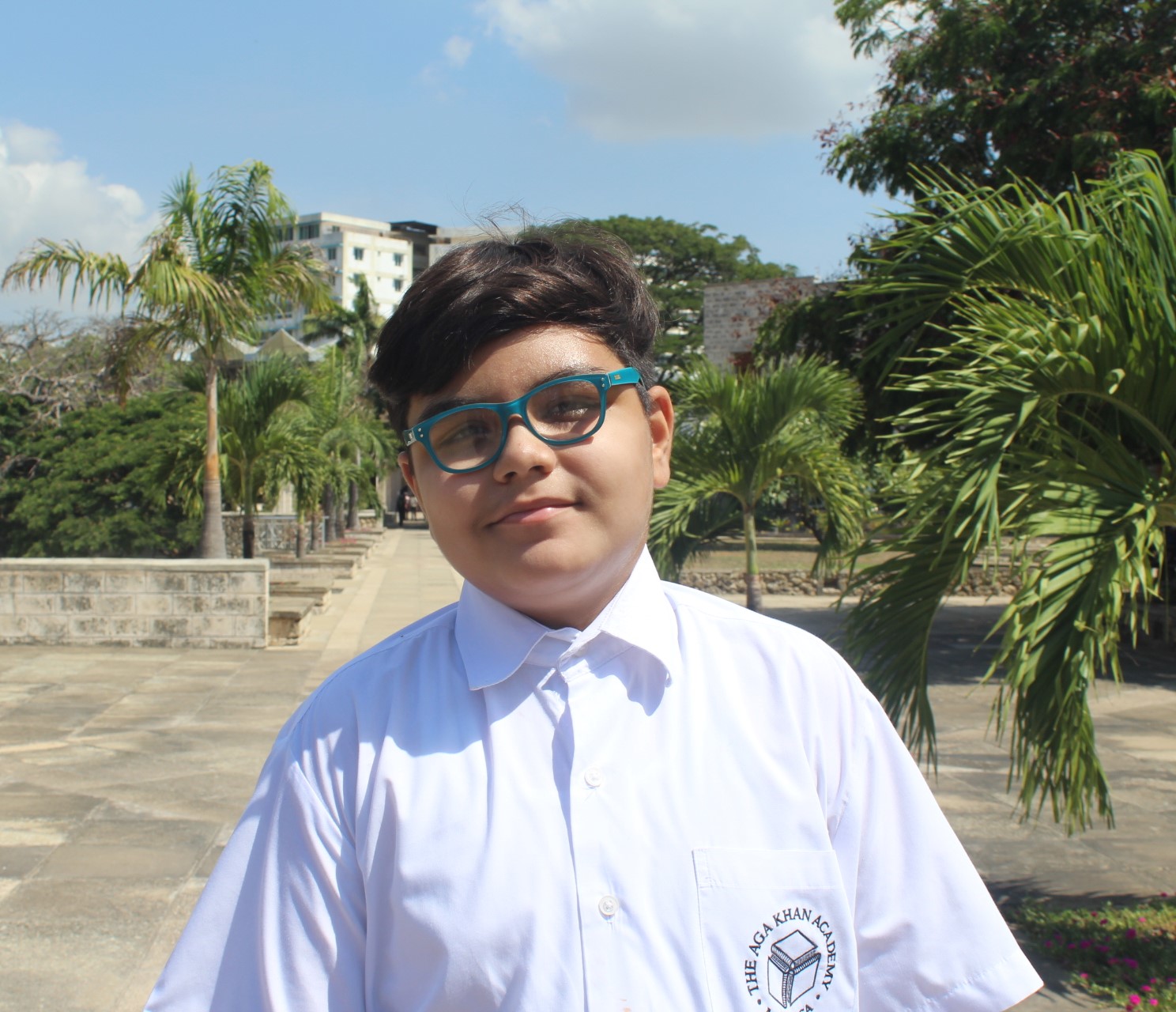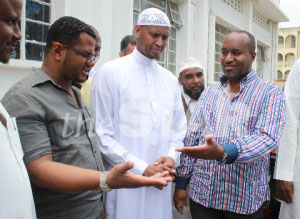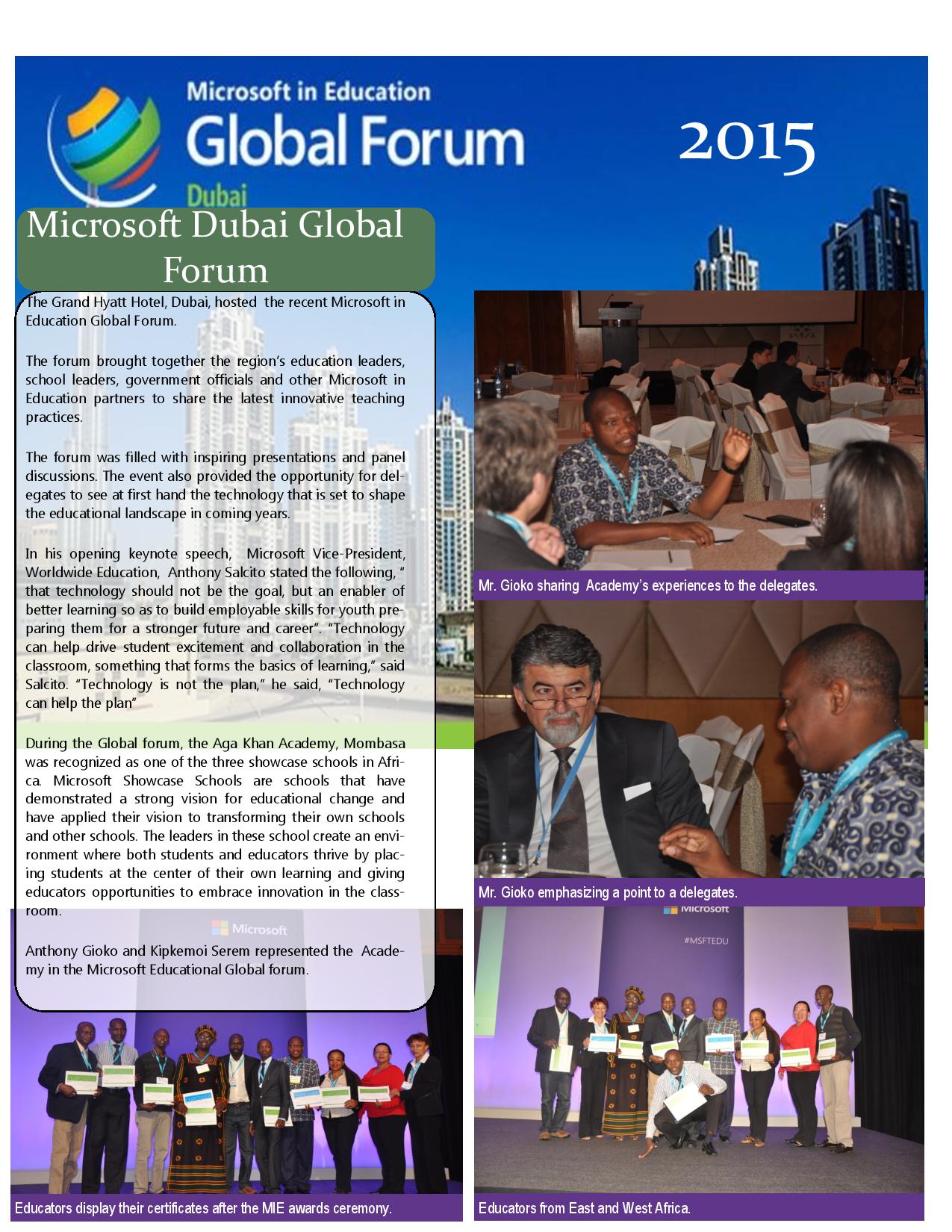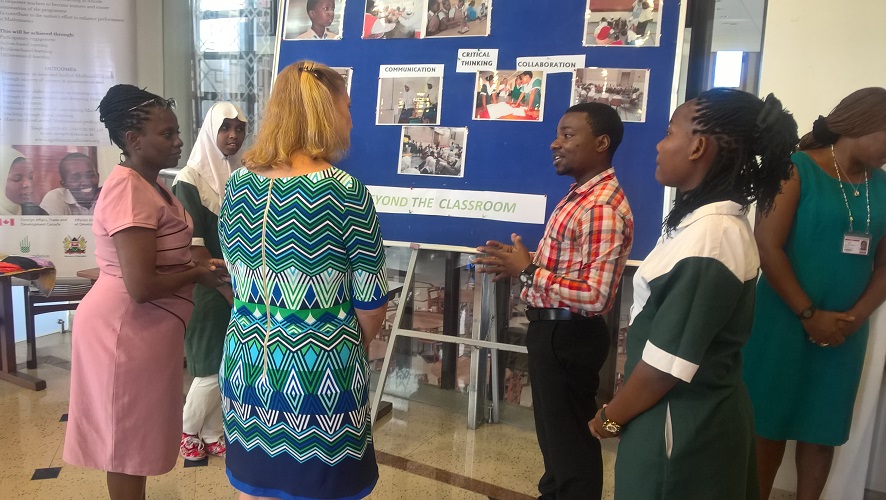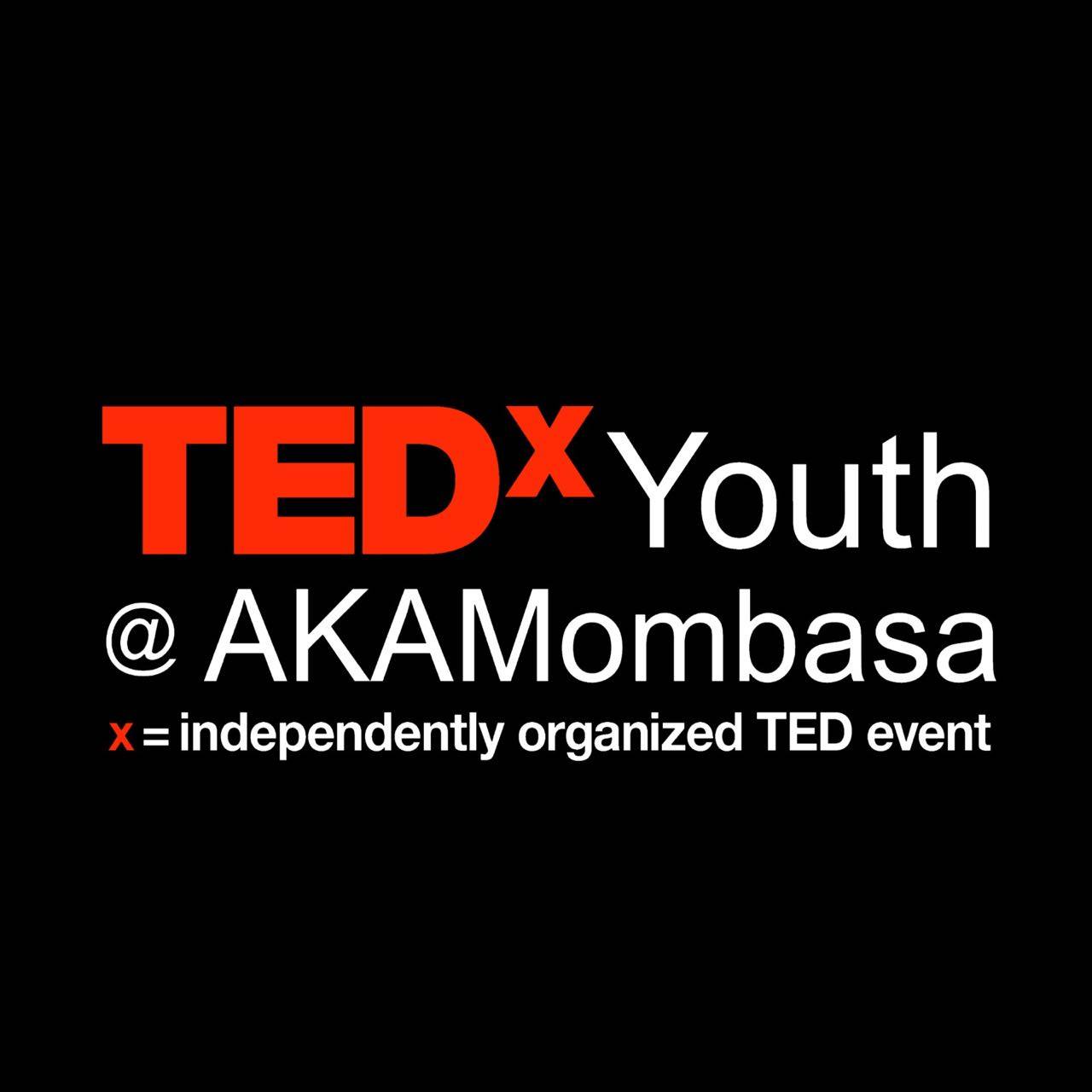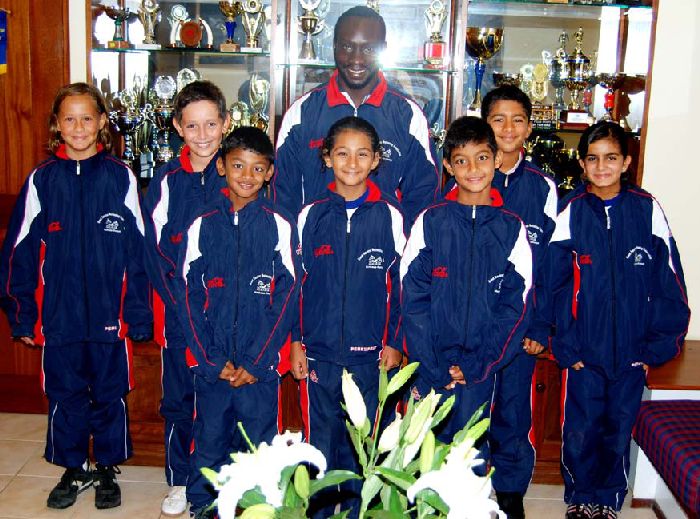Naail Lakhani: Learner Agency Through Coding
Naail Lakhani, a Year 5 student in Junior School, has demonstrated incredible maturity, leadership, and initiative since joining the Aga Khan Academy Mombasa in 2018. His proudest achievement is founding the Junior School Coding Club, an after-school extracurricular activity to teach coding to young minds. With approximately 30 members, Naail has been running the club successfully for over a year now.
Naail developed his passion for coding at the beginning of COVID-19 pandemic. “One day, I decided to search up easy coding for kids, and I stumbled upon this great website called Khan Academy which taught me different programming languages like C++ and Javascript,” said Naail. “I was then approached by Ms. Nuala Alibhai, the Head of Student Support and well-being in Junior School, who knew about my interest in coding and proposed the idea of starting a club in school. I agreed, and the coding club was born.”In addition to teaching coding skills, the club encourages its members to develop learner agency - shifting ownership of learning from teachers to students. "I believe that learner agency is important because it allows students to build their critical thinking and problem-solving skills, as well as perseverance and adaptability," Naail said. Members of the club attain learner agency by practicing coding rather than just learning it so that they can have the opportunity to apply their knowledge and test their understanding.
“I have been a part of the coding club since it first began, so for over a year now, and I have loved every minute of it,” says Kanika Tahiliani, a student in Year 4. “I learnt how to make shapes and add color to different objects like foods and a snowman using code.”
As Naail transitions to Senior School, he plans to continue and expand his club. By increasing the club’s capacity and opening up the club to both Junior and Senior School, Naail hopes to inspire more students to pursue coding. “My coding club is just the beginning,” said Naail. “I can already see myself working in tech companies like Google when I am older, or maybe I can even start my own company.”
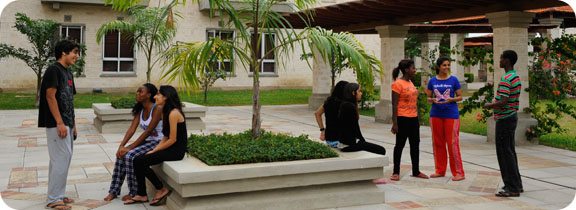
Living on Campus
Residential life at the Academy complements and extends the academic experience. The residential programme includes a broad selection of activities and leadership opportunities to enhance students’ learning and growth.
The Academy's residential programme officially opened in April 2009. Our student residences have been designed to accommodate students and dorm parents, who are teachers who have been chosen carefully and trained to live in the faculty apartments in the student residences.
Up to four students share a room. The rooms are spacious with high ceilings and large windows. Facilities include a student lounge with a breathtaking view out to sea and a large-screen television along with laundry facilities.
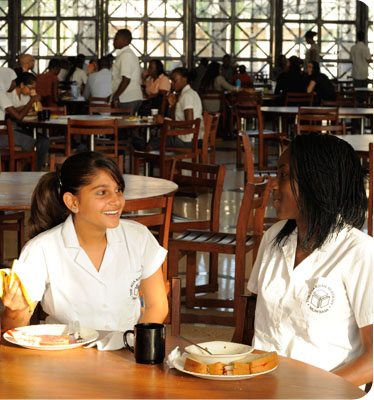 The Commons building houses the dining hall and an array of spaces for school activities. It is the hub of student activity and serves as the main space for major school functions, including music and drama performances and public lectures.
The Commons building houses the dining hall and an array of spaces for school activities. It is the hub of student activity and serves as the main space for major school functions, including music and drama performances and public lectures.
“The tour of the residential facility gave me a great sense of fulfillment,” said Bernard Dudi, a teacher and dorm parent. “I appreciate the amount of planning and resources and the thoroughness of the execution.”
Learning beyond the classroom
The culture of the Academy is based on respect, integrity, honesty, fairness, empathy and good humour. Our students, teachers and administrative staff create and sustain this positive learning environment.
The experience of our pluralistic learning community is especially rich for students in residence given the constant interactions among students, faculty and staff from diverse backgrounds.
The focus of the residential programme is on students’ intellectual, social, spiritual and physical growth in a structured and ethical environment. In the words of Aziz Batada, a former dorm parent, “The residential experience allows the typical school day – where the vision of the Aga Khan Academy is continuously being lived – to be extended, and education itself is seen as a part of every moment of an individual's life.”
